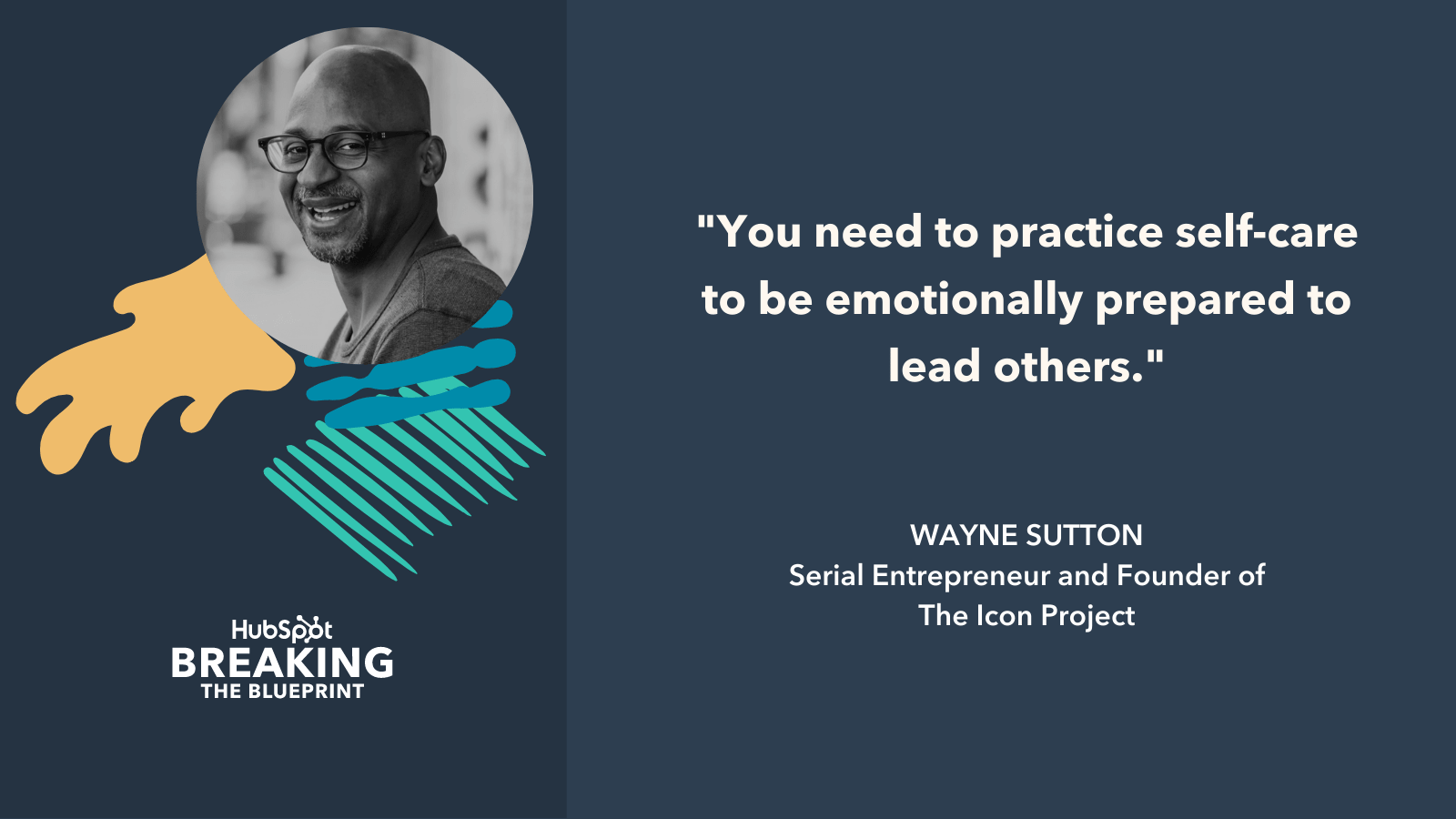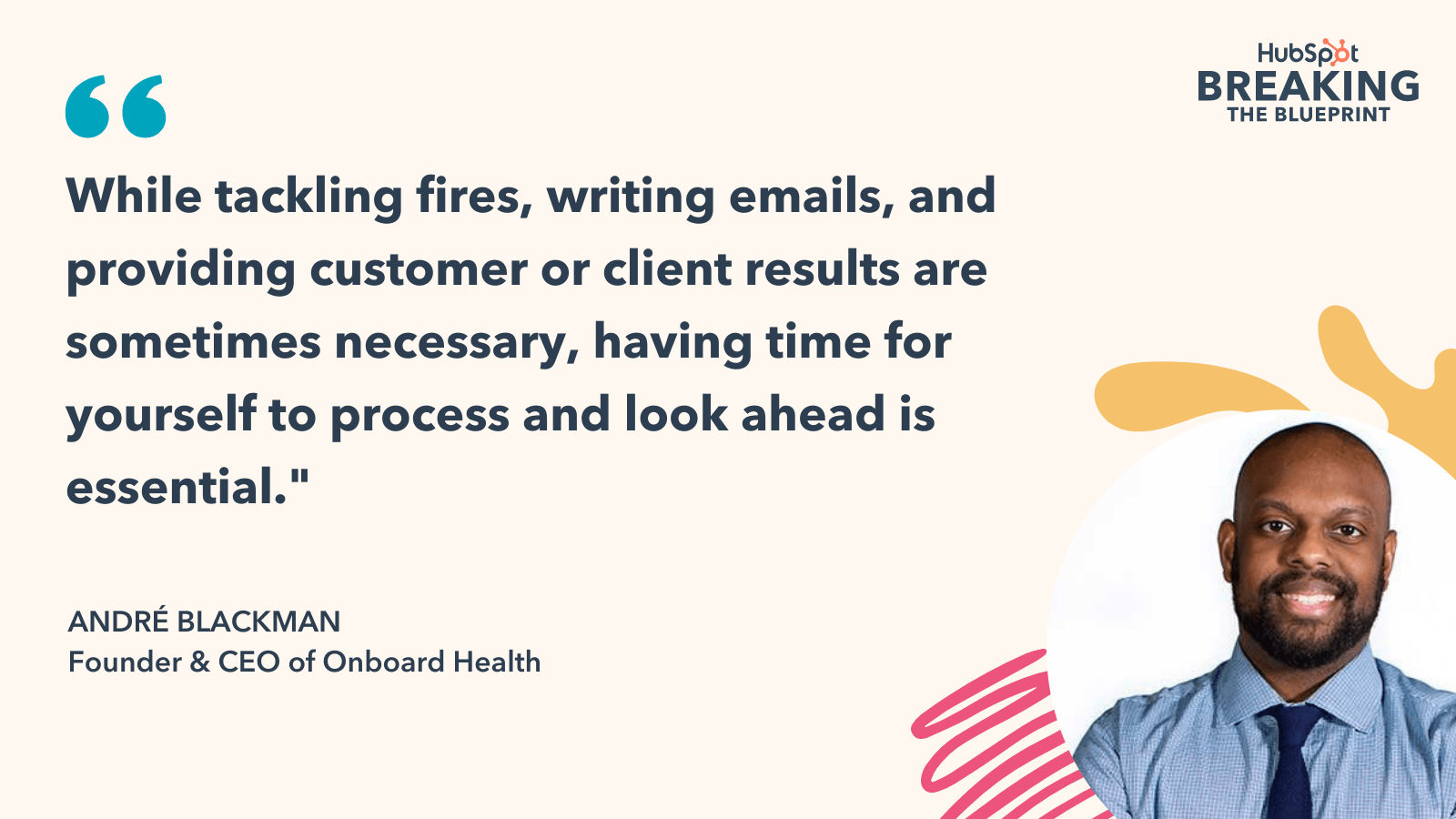Welcome to <em>Breaking the Blueprint</em>— a blog series that dives into the unique business challenges and opportunities of underrepresented business owners and entrepreneurs. Learn how they’ve grown or scaled their businesses, explored entrepreneurial ventures within their companies, or created side hustles, and how their stories can inspire and inform your own success.
Leadership is comprised of a combination of skills business leaders leverage to lead entire companies.
Whether you're the VP of Marketing or informally viewed as a leader within your team, it's vital as a leader that you know how to help others achieve a common goal.
Here, we asked Black business leaders across a variety of industries what they've learned about leading a Black-owned business. Keep reading to learn what they had to say.
1. Know Your Numbers
“Know your numbers,” says Kimberly Bryant (@6Gems), Founder & CEO of Black Girls Code, whose mission centers around a very big number: Empowering 1 million young women of color, ages 7-17, “to become innovators in STEM fields”, by 2040.
Knowing your numbers is key to measuring the growth of your business and securing investments.
Bryant recommends “[understand] your reach, customer conversion metrics, revenues, and expenses front to back.”
Hiring a professional is also highly recommended, but doesn‘t negate a business leader’s responsibility to “Understand the intricacies of your business finances. This will help you lead and drive your organization forward through storms and triumphs.”
2. Strengthen Emotional Intelligence
During the growing pains of any business, it becomes increasingly important for leaders to manage their emotions.
“Emotional intelligence will make or break your leadership journey with your team and clients,” says Sherrell Dorsey (@sherrell_dorsey), founder of TP Insights, a newsletter on Black founders and innovations that has grown into investigating and reporting on Black tech trends, stories, and breaking news.
Black business owners are subject to harsh and even humiliating experiences fueled by racism and sexism on top of the everyday challenges of building a business.
When the work gets frustrating and tempers run hot, Dorsey cautions, “It’s a life-long journey to learn the art of mastering ourselves to navigate challenging times and lead when we feel the weight of the world, but exercising that EQ muscle will shape our forward trajectories when we invest in it frequently and ruthlessly.”
The Harvard Business review backs this up, with emotional intelligence accounting for “nearly 90 percent of what sets high performers apart from peers with similar technical skills and knowledge.”
3. Practice Self-Care
One way to build emotional intelligence is through self-care — as the common saying goes, “Always put on your own oxygen mask first.”

As a long-time serial entrepreneur and industry leader, Wayne Sutton (@WayneSutton), founder of The Icon Project — a company that addresses mental health and professional development needs for Black & Brown men in the tech industry — says, “You need to practice self-care to be emotionally prepared to lead others.”
It‘s hard to show up for others when you’re struggling to show up for yourself. All too often, this can lead to stress, exhaustion and burnout. Take the time for yourself in order to excel as a leader.
4. Be Relentless … With Your Calendar
André Blackman (@mindofandre), is the Founder & CEO of Onboard Health, a specialized executive search and talent advisory firm dedicated to building an equitable future of health. Backman encourages being “relentless with your calendar around creating buffer/space for thinking.”
Time is a precious resource we can never keep or replenish. Which is why it's important to know where your time is going and to make time for yourself. To make sound decisions, leaders need space for reflection and deep thinking. That's hard to do on a full schedule.
“While tackling fires, writing emails, and providing customer or client results are sometimes necessary, having time for yourself to process and look ahead is essential,” urges Blackman.

5. Demonstrate Your Expertise, Always
Black entrepreneurs oftentimes face an uphill battle when it comes to finding opportunities. It's like trying to climb a steep mountain, where large companies act as checkpoints along the way. Gerald J. Leonard, author of Culture Is The Bass: 7 Principles for Developing A Culture That Works and Workplace Jazz: How to IMPROVISE – 9 Steps to Creating High-Performing Agile Project Teams, attests that “These checkpoints demand proof of your ability to scale, recruit and manage a team, and afford substantial insurance policies.”
>To tackle these seemingly inevitable obstacles, Gerald suggests “Partnering with others, and building relationships” that generate opportunity for connection with companies that can bring you closer to your goals.
Overcoming these challenges requires not only showcasing your skills but leaning heavily into networking. It takes time and effort to establish a track record based on skills and expertise, ensuring that one's success is not attributed to skin color.
6. Build Your Business Case, No Matter What
Donald Thompson (@DonThompson_Jr) is the CEO and co-founder of The Diversity Movement, a full-service, product-driven consultancy specializing in assisting both businesses and organizations with operationalizing diversity, equity, and inclusion as an essential catalyst for success,
One commonality he has recognized in his own professional and business development journey is articulating “The vision,” especially when seeking support for long-term entrepreneurship efforts.
“While it is easy to get distracted or discouraged, I urge Black entrepreneurs to build that fundamental business case,” Whether it's a 30-second elevator pitch or the hour-long business pitch, Donald emphasizes that it is essential to “create that compelling case for people to bet on you with their time and energy.”
By consistently building and refining your vision, you'll be able to confidently navigate the path to success.
7. Be The Change You Want To See
“I've seen through experience how being the change you want to see in the world makes a real difference,” says Ronell Smith (@RonellSmith), CEO and founder of RS Strategic Solutions, and digital marketing strategist for over a decade.
Throughout his time spent in the business, Ronell has identified the significant disparity in Black-owned and spearheaded networking spaces, mentoring opportunities, information sharing platforms, and overall support.
His best piece of advice for tackling this revolves around creating your own representation, especially through your own business. “The simplest and easiest way to remedy this is to be the change you want to see.Each week, I devote at least six to hours to meeting with and mentoring young minority entrepreneurs and soon-to-be entrepreneurs.”
By fostering these relationships, you are also cultivating a supportive, sustainable ecosystem for minority-owned businesses.
8. Ask Big, Bold & Expansive Questions
Tony Robbins once said, “The quality of your questions determine the quality of your life and business.” This quote rings true for Felecia Hatcher (@FeleciaHatcher), co-founder of the Center for Black Innovation, a research think tank building equitable pathways to rid Black communities of innovation deserts.
Hatcher is no stranger to both asking and receiving big, bold questions. This is why she encourages Black business leaders to get into the habit of doing the same with their team — and themselves.
“We must ask big, bold and expansive questions to ourselves and the people around us.” From these questions can emerge “insights [that] will help inform your best next moves.”

You may be the leader, but you don't have all the answers. By asking “big, bold, and expansive questions”, you can find the possibilities with your team.
Leadership starts with taking care of yourself, your team, and the business as a whole. The lessons in leadership these Black-owned business leaders have shared is just the tip of the iceberg and a great starting point for others to apply right now. Practicing these tips now can improve your leadership for the long run.





Recent Comments